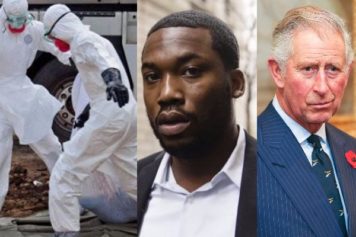In West Africa, 603 people have fallen victim to the Ebola outbreak, and more than 900 cases have been reported.
But in the eye of the epidemic, there has been violence directed at the health care officials who are risking their lives to save others. According to a Reuters U.K. report, medical workers in masks and protective suits often draw suspicion and fear from locals. There have been several incidents of health centers and workers being attacked by the communities they’re trying to help.
“We are seeing a lot of mistrust, intimidation and hostility from part of the population,” Marc Poncin, emergency coordinator for medical charity Medecins Sans Frontieres in Guinea, told Reuters.
There have been periodic outbreaks of Ebola in Africa since it was first detected in the mid-1970s in the Democratic Republic of Congo. However, this is the first outbreak of the disease in West Africa as well as the deadliest on record.
West African leaders have made public statements to urge people who are sick or hiding sick relatives to come for treatment and have bolstered security around treatment centers.
“We are increasing police presence around health facilities to uphold the law and prevent incidents of violence against health workers and vandalization of health facilities,” says Ernest Bai Koroma, president of Sierra Leone, to Reuters.
There is no cure or vaccine for the virus. Currently, the fatality rate is over 60 percent, and doctors feel the four-month epidemic is only the tip of the iceberg.
The World Health Organization has been mobilizing religious and traditional leaders to educate and gain the confidence of villagers so that health workers can continue to treat the sick and dying.
S.C. Rhyne is a blogger and novelist in New York City. Follow the author on Twitter @ReporterandGirl, http://Facebook.com/


